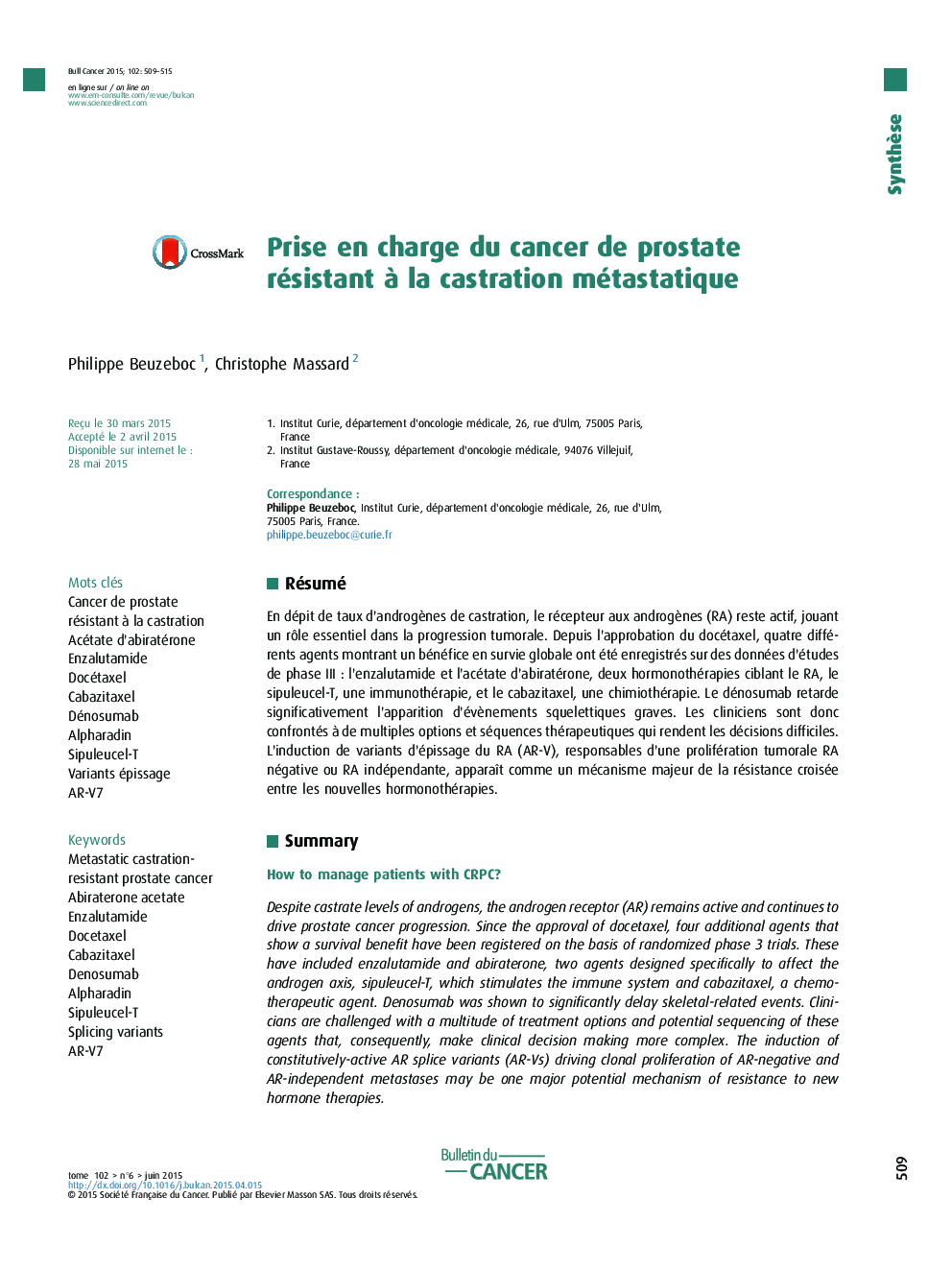| Article ID | Journal | Published Year | Pages | File Type |
|---|---|---|---|---|
| 6190168 | Bulletin du Cancer | 2015 | 7 Pages |
Abstract
Despite castrate levels of androgens, the androgen receptor (AR) remains active and continues to drive prostate cancer progression. Since the approval of docetaxel, four additional agents that show a survival benefit have been registered on the basis of randomized phase 3Â trials. These have included enzalutamide and abiraterone, two agents designed specifically to affect the androgen axis, sipuleucel-T, which stimulates the immune system and cabazitaxel, a chemotherapeutic agent. Denosumab was shown to significantly delay skeletal-related events. Clinicians are challenged with a multitude of treatment options and potential sequencing of these agents that, consequently, make clinical decision making more complex. The induction of constitutively-active AR splice variants (AR-Vs) driving clonal proliferation of AR-negative and AR-independent metastases may be one major potential mechanism of resistance to new hormone therapies.
Related Topics
Health Sciences
Medicine and Dentistry
Oncology
Authors
Philippe Beuzeboc, Christophe Massard,
